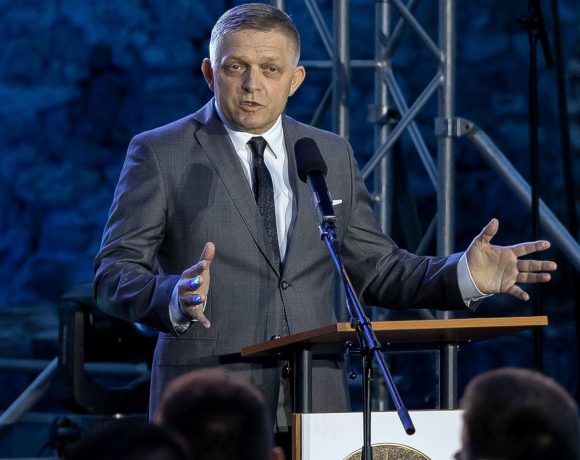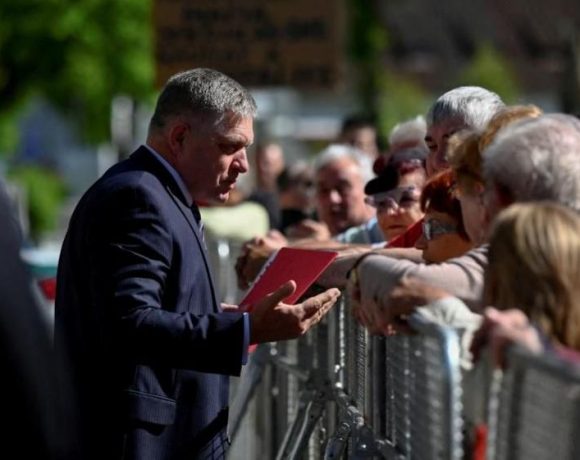
The Slovakian Prime Minister made his first public appearance following an assassination attempt. Robert Fico was shot multiple times on May 15 while greeting people outside a cultural center in Handlova, approximately 180km (112 miles) from Bratislava. He underwent emergency surgery and was later discharged to recover at home.
On Friday, Mr. Fico attended a ceremony at Devin Castle in Bratislava to celebrate Saints Cyril and Methodius Day, a public holiday in Slovakia. Cyril and Methodius, two brothers from the 9th century, are credited with converting the Slavic people to Christianity and creating an early version of the Cyrillic alphabet.
During his speech, Mr. Fico, 59, criticized the spread of progressive ideologies and the West’s approach to Russia regarding the war in Ukraine. He referred to liberal ideas as “meaningless” and spreading “like cancer,” and argued that there were insufficient peace talks with Russian President Vladimir Putin to end the conflict.
Mr. Fico, a populist who returned to office last October, has been a polarizing figure both domestically and within the EU. He has called for an end to military aid to Ukraine and sanctions on Russia, and proposed abolishing Slovakia’s public broadcaster.
The attacker, identified as 71-year-old Jurac C., is described as a writer and political activist. Footage of the incident shows a gun being drawn in the crowd and five shots fired. The Prime Minister was quickly escorted into a car by his bodyguards, while the suspect was detained at the scene.
In a video address posted on social media on June 5, Mr. Fico stated that he forgave his assailant and harbored no hatred towards him, blaming the attack on his parliamentary opposition.
Picture Courtesy: Google/images are subject to copyright

